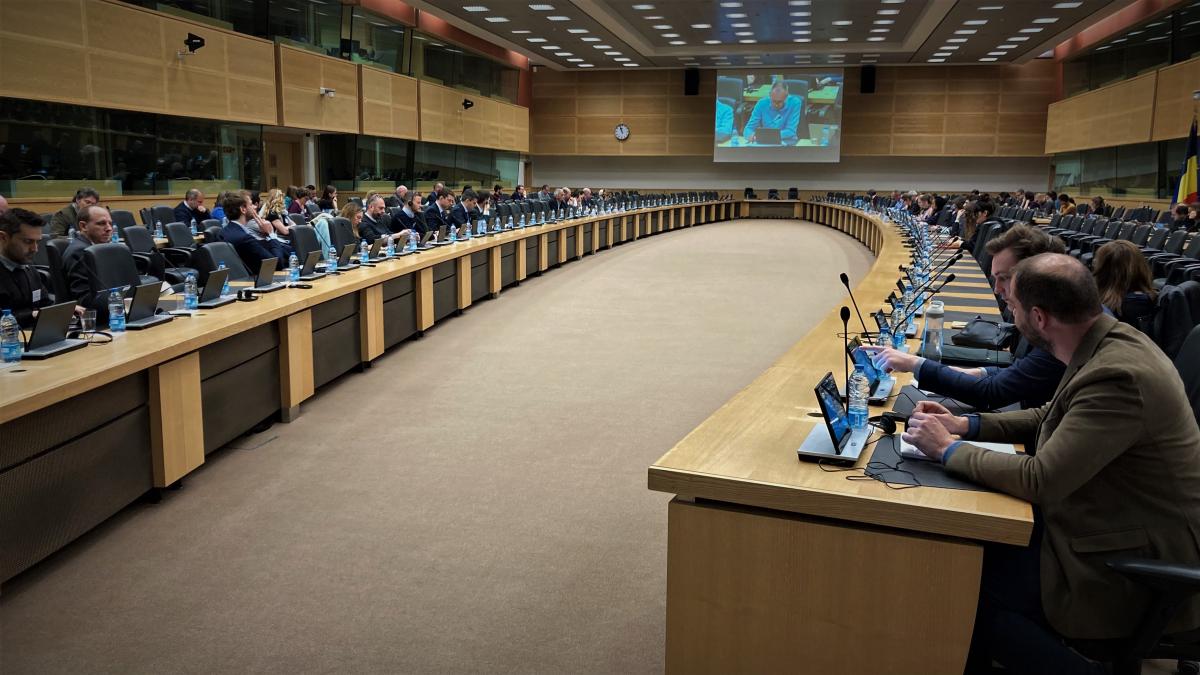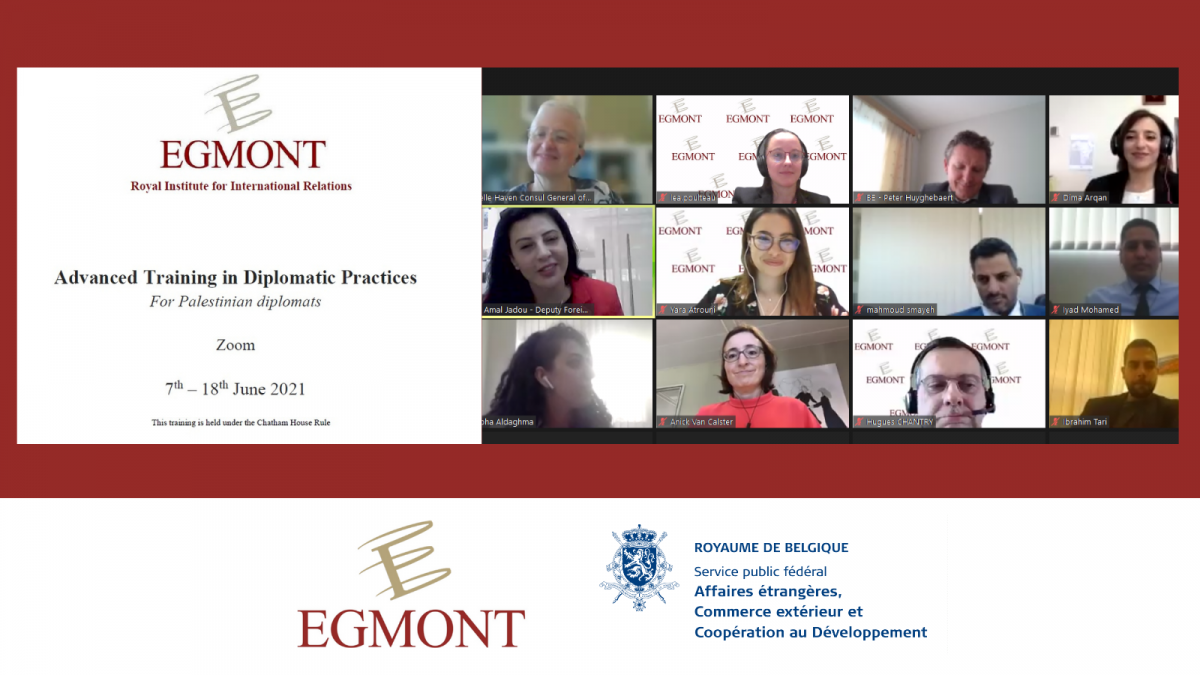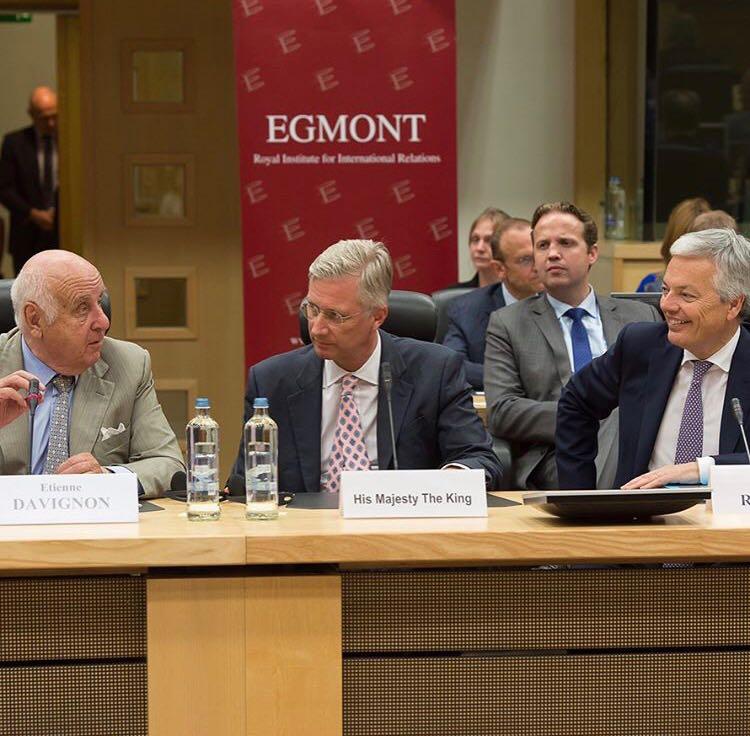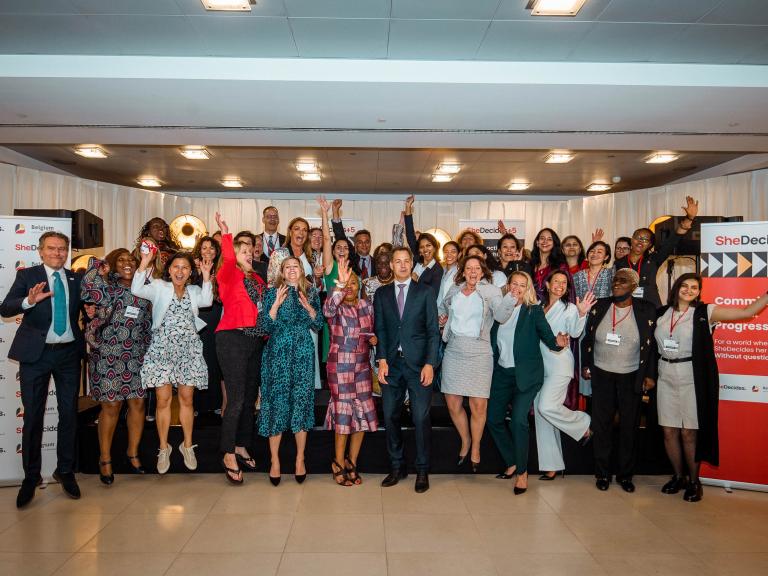-
Last updated on

A seminar on the Sahel organised by the Egmont Institute (© Egmont Institute).
For 75 years, the Egmont Institute has supported Belgian foreign policy as an independent think tank and conference organiser. After all, sound policy needs a critical eye.
You may have heard of the renowned think tanks Chatham House (United Kingdom) and the Clingendael Institute (Netherlands). In Belgium, too, the experts at the Egmont Institute are increasingly being featured in the media. All 3 are independent research institutions that study international relations. They comment on world events and offer solutions to global challenges.
Bridging role
It is characteristic of them that they serve in a bridging role between academia and policy. They are meeting places between researchers and academics (reflection) on the one hand and policy-makers and diplomats (action) on the other. After all, the global challenges are quite complex, which makes it more than helpful for policy-makers and diplomats – who are mainly focused on practice – to be supported by researchers who can analyse those challenges with great nuance. As such, they feed into the discussion and provide a firmer basis for policy-makers to make informed decisions. They can and should be critical in this, but in a constructive way.
Studia Diplomatica
This year marks the 75th anniversary of the Belgian Egmont Institute, or the Royal Institute for International Relations. Initially, the institute was more of an organiser of conferences and seminars. Indeed, in 1947, former Prime Minister and Senator Van Zeeland wanted to create a place where prominent figures, passing through Belgium, could give lectures. These conferences were written down almost verbatim and collected in the journal 'Studia Diplomatica'
Studia Diplomatica evolved from a conference reference work into an academic journal, but was discontinued in 2017. Nonetheless, the content remains particularly relevant. Hence, the journal can still be consulted and has since been fully digitalised.

A training of Palestinian diplomats in times of coronavirus pandemic (© Egmont Institute).
Full-fledged think tank
In the 1990s, the Egmont Institute was transformed from an organiser of conferences into a full-fledged think tank. After all, Minister Louis Michel needed a 'reflection room' or think tank to prepare for Belgium's European presidency. This gave rise to the research programmes European Affairs, which examines the internal state of the EU, and Europe in the World, which is dedicated to the EU's external relations.
Meanwhile, a robust Africa programme was added, in addition to an extensive training programme. One of the latter's core tasks is to provide short training courses for foreign diplomats and officials, at the request of the FPS Foreign Affairs.
National security strategy
The training programme is certainly one of the institute's great success stories. But the think tank also made an essential contribution to the creation of our country's national security strategy. To do so, the Egmont Institute organised consultations with the private sector, civil society and academia.
The Sahel is currently a hot topic. The Africa Programme led by Nina Wilén is teasing out how best to deal with that. It also fuelled the discussion on how Belgium can best position itself within European defence and NATO. A trending theme is the increasing importance of the Arctic region.
The Egmont Institute does not shy away from delicate and less popular topics. For example, the institute played a prominent role in making the return of Syrian fighters, including mothers and children, a topic of discussion. There is also some solid research into gender & peacekeeping.
Public debate
To an extent, the Egmont Institute remains true to its original mission of organising conferences. In 2021 – still a coronavirus year – 80 events were organised. The goal is always to bring together researchers and policy-makers and provide cross-fertilisation. Some events are open to the public, while others take place behind closed doors. 2021 also produced 100 publications.
The fact that some of the staff members are also affiliated to a university is by no means inconsistent with the core mission: to serve as a bridge between the worlds of academia and policy. Some of them are getting more and more coverage in the Belgian media. These include Sven Biscop, Alexander Mattelaer, David Criekemans and terrorism expert Thomas Renard. This is how the institute is helping to feed into the public debate.

King Philippe visiting the 70th anniversary of the Egmont Institute. On the left, Etienne Davignon and on the right former Minister of Foreign Affairs Didier Reynders (© Egmont Institute).
Critical eye
European policy-makers also regularly call upon the institute – even the UN. The Egmont Institute also works closely with foreign think tanks such as the Clingendael Institute and Chatham House.
In short, after 75 years, the role of the Egmont Institute is more topical than ever. This is why the FPS Foreign Affairs continues to provide core funding for this independent think tank. A critical, constructive eye is indispensable in formulating the best possible policies. As it happens, the institute insists that all of its publications are freely accessible to everyone.
More on Human

Arolsen Archives keep memory of Shoʾah alive
Belgium concluded its presidency of the Arolsen Archives, a centre for documentation, information and research on the persecutio...

A user-friendly website with a new look
As of 21 June 2022, we have a brand-new website that puts the user first.

5 years of SheDecides: because women's rights are fundamental human rights
In May 2022, Brussels celebrated 5 years of SheDecides. The movement stands up worldwide for women's right to make their own dec...
